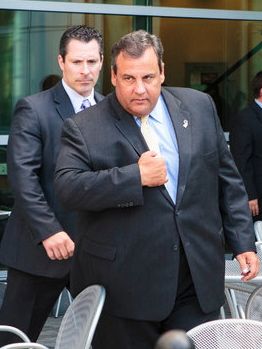Why Did Christie BPU Keep Economics of Pines Pipeline Gas Deal Secret?
BL England Plant Gets Below Market Rates and Millions in Subsidies
South Jersey Gas Seeks Rate Increase Before Pipeline is Even Built
South Jersey Homes and Businesses Will Pay More To Subsidize BL England
Corporate Profits Prevail Over Public Interest
“Today, a new era of accountability and transparency is here.” ~~~ Gov. Chris Christie, Inaugural speech, Jan. 19, 2010
Compliance and Ethics Program: Since our company was founded, we have had a reputation for being an honest and fair company with which to do business. Over time, we have demonstrated the ability to operate transparently by establishing policies and procedures that ensure integrity and fair business practices. ~~~ South Jersey Industries
[Update below]
On November 29, 2013, South Jersey Gas announced their request to BPU for a huge rate increase, which would cost the average homeowner, at least $18 per month:
Should the full amount of the request be approved, a typical heating customer’s monthly bill at 100-therms would increase by $18.43, from $128.31 to $146.74.
For context of how much gas 100 therms is, consider the fact that the proposed Pinelands pipeline to BL England is designed to carry 20 million therms per year – so, doing the math, the proposed rate increase, if applied equally to the BL England plant, should be a whopping $307,176 per month.
But that ain’t gonna happen – businesses and homeowners will see huge rate increases while BL England gets cheaper gas and exempted from energy taxes and charges.
That’s right – BL England will pay far less for gas than other south jersey businesses and homeowners. All while consumers pay for the lion’s share of a $100 million private gas pipeline dedicated to the BL England plant, as well as the $8 million bribe to the Pinelands Commission to get it approved.
Is that all part of SJG’s “honest and fair business practices”?
The SJG rate increase request appears to include an up front recovery of the full costs of the controversial $100 million Pinelands pipeline, which was scheduled to begin construction in 2013.
Do typical local construction contractors get paid up front for work not even done yet? (see the controversial Christie policy that allowed that: GAS UTILITIES LOOK FOR RAPID RECOVERY OF COSTS FOR UPGRADING INFRASTRUCTURE)
This filing primarily seeks to recover costs for $553 million of necessary infrastructure investments made to enhance the safety and reliability of SJG’s system that will have been and will be spent between September 2010 and the end of 2014.
But regardless of whether this huge SJG rate increase reflects the costs of the proposed Pinelands pipeline, why did Board of Public Utilities (BPU) keep the economic details of a below market gas deal between South Jersey Gas Co. (SJG) and the BL England plant (BLE) secret?
Is that part of Gov. Christie’s “new era of transparency”?
Here is the secrecy provision from the BPU’s April 29, 2013 Order:
If you look at the fine print of you gas and electric bill, you might see that as a consumer of energy, you pay a very small per unit energy consumed fee known as the “Societal Benefits Charge” – that funds clean energy programs is NJ. It cost a homeowner a few dollars a month, but large energy consumers, like the BL England plant, could pay millions of dollars a year.
So why did BPU grant BL England millions of dollars of subsidies from exemptions from charges like the Societal Benefits Charge, paid by all other energy consumers?
Here are the exemptions from the BPU Order:
Could that secrecy and all those millions of dollars in subsidies and loopholes it be the result of insider access and revolving door lobbying of well connected former officials?
Consider the fact that BL England’s lead legal Counsel is John Valeri, now at Wolff Samson – a former lawyer from the Whitman Governor’s Office and EPA.
So it is almost certain that Valeri’s inside access produced these kind of results, which provide huge corporate profits but are strongly not in the public interest or those of south jersey ratepayers.
Did Mr. Valeri work on any energy issue while employed by the Governor?
Why aren’t any of these issues investigated or reported in the press?
Are there any intrepid reporters out there? There are at least 3 huge stories here –
- corporate subsides, tax breaks and loopholes – while small consumers get screwed
- secret regulatory deals
- revolving door access from former Governor’s Office lawyers and questionable ethics
Hello!
Update: 12/19/13 – Looks like BL England got a much better deal from BPU and that south jersey consumers got screwed, compared to this deal in central Jersey. South Jersey consumers pay 60% of the $100 million pipeline, which is dedicated to the BL England plant. The Cape May “reliability” crap is cover for that ripoff. On top of that abuse, south jersey consumers pay far more for gas than BL England does::
N.J. Natural Gas strikes long-term deal to provide service to Sayreville power plant
“Red Oak, a natural gas-fired plant, will be responsible for the cost of connecting to NJNG’s distribution main, which now runs within 600 feet of the facility.
New Jersey Natural Gas, which is a subsidiary of New Jersey Resources, said its customers won’t pay for the cost of connecting or providing natural gas service to the plant.” – end update]





